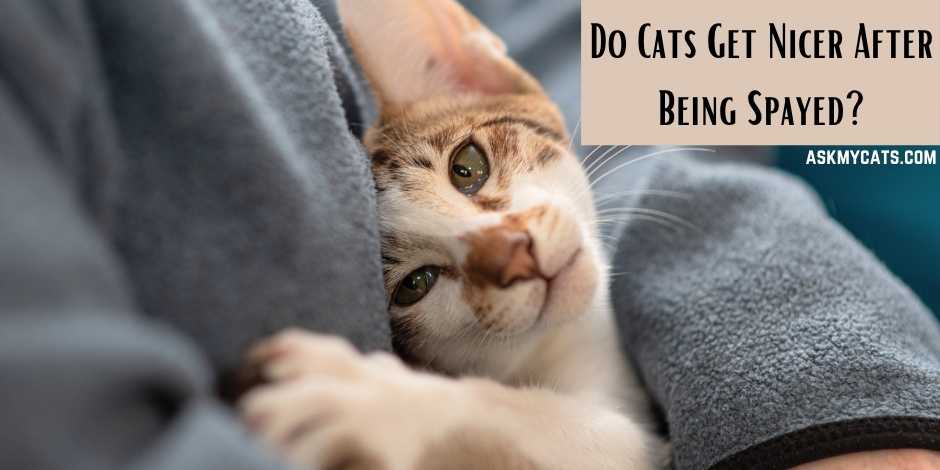Cats are affectionate animals that offer a lot of love to their owners. As pet owners, we have to make sure that our cats are healthy, happy, and safe. Part of that responsibility includes spaying and neutering cats once they reach the appropriate age. Spaying and neutering has been proven to be a beneficial procedure for cats because it prevents them from contracting diseases, unwanted pregnancies, and behavioral issues. However, some pet owners may wonder what effects spaying has on a cat's behavior, and if they will become nicer after going through the procedure.
How Does Spaying Affect A Cat's Behavior?

Spaying requires the removal of a female cat's ovaries and uterus, which can cause a change in behavior. The removal of these organs can decrease a cat's hormone levels, which can affect their behavior. Female cats tend to be less aggressive, and their behavior becomes calmer after spaying. In addition, spaying also reduces a female cat's desire to mate, so she may no longer become aggressive in pursuit of a mate.
What About Neutered Cats?

On the other hand, neutering male cats involves the removal of their testicles, which also affects their hormone levels. After neutering, male cats may become less territorial and aggressive. However, neutered male cats may still spray or mark their territory, especially if they feel threatened or stressed.
Why Do Cats Spray?

Cats spray or mark their territory as a way of communication with other cats. They use their urine as a way of leaving a message for other cats in the area. Male cats tend to spray more than female cats because they want to alert other cats to stay away from their territory. However, spraying can also be a sign of stress, anxiety, or a medical issue, so it's important to observe your cat's behavior if they start spraying frequently.
In conclusion, spaying and neutering are beneficial procedures for cats that can reduce the risks of diseases, unwanted pregnancies, and behavioral issues. Female cats tend to become calmer after spaying because their hormone levels decrease, while male cats may become less aggressive. However, neutered male cats may still spray or mark their territory, which can be a sign of stress or anxiety. As responsible pet owners, we have to make sure that our cats are healthy and happy by providing them with proper care and attention.
If you are searching about Cat Spraying: Why Do Cats Do It And How To Stop A Cat From Spraying you've visit to the right page. We have 5 Pics about Cat Spraying: Why Do Cats Do It And How To Stop A Cat From Spraying like 9 Nurturing Tricks: Will A Cat Stop Spraying After Being Spayed do, Do Cats Get Nicer After Being Spayed? Has Spay Affected My Cat’s Behavior? and also When Do Male Cats Stop Spraying After Being Neutered | mimmslaedche. Here you go:
Cat Spraying: Why Do Cats Do It And How To Stop A Cat From Spraying
 www.leluandbobo.com
www.leluandbobo.com
spraying
When Do Male Cats Stop Spraying After Being Neutered | Mimmslaedche
 mimmslaedche.blogspot.com
mimmslaedche.blogspot.com
Do Cats Get Nicer After Being Spayed? Has Spay Affected My Cat’s Behavior?
 askmycats.com
askmycats.com
spayed nicer affected spay
9 Nurturing Tricks: Will A Cat Stop Spraying After Being Spayed Do
 www.pinterest.com
www.pinterest.com
spraying spray
So Why Does Cat Spraying Even Happen? | Male Cat Spraying, Cat Spray
 www.pinterest.com
www.pinterest.com
spraying neutered neutering elak buang kucing najis kencing spayed cease spaying
So why does cat spraying even happen?. Spayed nicer affected spay. When do male cats stop spraying after being neutered

